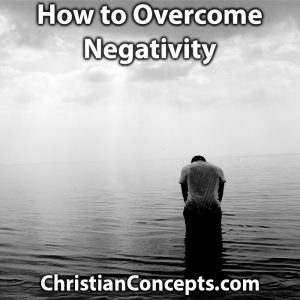Reading time: 4 minutes
In a world where every notification and obligation rings important like a five-alarm fire, stress and burnout come not only from doing too much, but from doing the wrong things. That’s why the Urgent-Important Grid—also known as the Eisenhower Matrix—can be a powerful tool for Christians seeking peace, clarity, and purpose.
This simple four-quadrant system helps sort tasks based on urgency and importance, clarifying what truly needs our attention and what doesn’t. But more than productivity, the grid serves as a guide for spiritual boundaries and stewardship of time, helping us walk more wisely in a world that pulls us in every direction.
Quadrant 1: Urgent and Important – Do It Now
These are the tasks that keep life running—crises, deadlines, and responsibilities we can’t avoid. Work obligations, caring for children, attending to health issues—they’re urgent because delay carries real consequences. And they’re important because they serve foundational roles in our lives.
But living in this quadrant long-term is exhausting. It’s survival mode. When every day feels like triage, it’s a signal that we need to spend more time in Quadrant 2, cultivating the things that prevent emergencies before they arise.
Quadrant 2: Not Urgent and Important – Schedule It
This is the “abundant life” Jesus speaks about—planning, prayer, relationship-building, learning, and investing in long-term goals. Tasks in Q2 rarely demand our attention with urgency, yet they form the deep roots of spiritual, emotional, and relational health.
For believers, this quadrant is where we meditate on Scripture, disciple others, reflect, and grow. It’s the place of calling rather than coping. Spending time here leads to greater peace and clarity, and keeps us from drifting into stress-inducing chaos.
So far, this all sounds like serious work, but what is important but not urgent is also found in all recreation. What reduces stress? What is fun? Playful? Restful? Think of the Sabbath Rest.
Quadrant 3: Urgent and Not Important – Discern: Do or Decline
This is where confusion often creeps in. Tasks in Q3 feel urgent, but they aren’t truly aligned with your purpose. They’re often someone else’s priorities masquerading as emergencies—interruptions, emails, favors, even good things that aren’t your things.
The key here isn’t impulsive delegation but wise discernment. We must ask hard questions: Is this truly mine to handle? Am I responding out of guilt, fear, or a need to please? Will this steal time from something more meaningful?
Sometimes, we may decide to do the task quickly and move on. But often, we’re called to decline respectfully or direct the request elsewhere. This isn’t selfish—it’s stewardship.
Jesus models this beautifully. He didn’t meet every demand or heal every person. He was available but not constantly accessible. He knew when to engage, when to withdraw, and when to say “not now.” God has an intentional plan. He always sticks to His plan. Sometimes this means some potentially good tasks go undone, but only because something more important gets done.
Quadrant 3 is often where boundaries break down and stress multiplies. It’s the testing ground for our spiritual resolve—will we walk wisely or reactively?
That’s why the words of Ephesians 5:15–16 are especially relevant here: “Look carefully then how you walk, not as unwise but as wise, making the best use of the time, because the days are evil.” The apostle Paul calls us to intentional living—not just urgency-driven motion.
Quadrant 4: Not Urgent and Not Important – Eliminate or Limit
Scrolling, bingeing, endlessly clicking. This quadrant isn’t all bad, but it’s rarely fruitful. These are the habits that soothe but don’t satisfy.
For Christians, this is the realm of distraction. It’s not usually sinful rest, but it can become escapism without purpose. Q4 is a warning to reset—to choose solitude, rest, and presence over noise. What will really nourish your spirit? Find something healthier to do that fits in Q2.
Final Thoughts
Time management is not just tactical—it’s theological. Each quadrant reflects our values, boundaries, and convictions. The Urgent-Important Grid helps us live less reactively and more redemptively. In using it well, we step into a rhythm that reflects the life of Christ: focused, free, and deeply present.
Learn more about play and rest.
More details about the Eisenhower Matrix.
Image created by Matt Pavlik using Co-Pilot AI.






